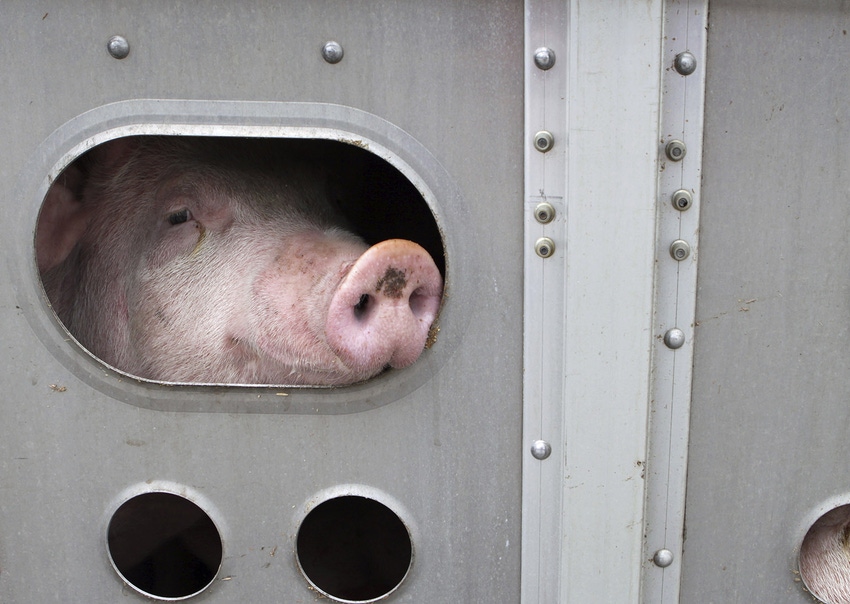Legislative Watch: GIPSA rules implementation delayed 180 days; 100-day U.S.-China trade plan announced; USTR confirmation has to wait.
April 14, 2017

USDA announces it is delaying its “Farmer Fair Practices Rules” by 180 days and will ask for public comments. Last December the Obama administration published the Grain Inspection, Packers and Stockyards Administration rules as an interim final rule and two proposed rules.
The interim final rule establishes a new legal standard for proof of harm for violations of the Packers and Stockyards Act which would make it easier for producers to sue packers. This rule was to go into effect on April 22 now is scheduled for Oct. 19.
The first proposed rule would 1) identify certain activities that are “unfair, unjustly discriminatory or deceptive practices or devices” by packers, swine contractors or live poultry dealers and 2) provide criteria when determining whether a packer, swine contractor or live poultry dealer engaged in conduct that provided undue or unreasonable preferences or advantages. The second proposed rule would establish criteria affecting how a live poultry dealer uses poultry growing systems.
USDA’s announcement, gives the new administration time to determine what actions it will take on the rules. Randall Jones, acting administrator of the GIPSA says in a statement, “The extension allows ample time for stakeholders to review the effects of the Scope Interim Final Rule on their operations, and ensure maximum opportunity for dialogue across every segment of the livestock, meat and poultry industries.”
The meat, livestock and poultry industries praise the Trump administration’s decision. The North American Meat Institute says, “The delay is imperative to ensure this damaging rule does not take effect without a careful review by the new administration. We are confident that once the new secretary of agriculture takes office, he will recognize what a disaster this rule is for producers, meat packers and processors, retailers and consumers.” According to NAMI, “Quite simply, neither the IFR nor the previously proposed rules should see the light of day. They violate the intent of Congress, numerous court rulings and the administration’s desire to reduce regulations and control costs, and they will undermine the meat industry’s ability to meet consumer demand. The administration’s action delaying the IFR is prudent and warranted.”
The National Pork Producers Council says, “The regulations would likely restrict the buying and selling of livestock, lead to consolidation of the livestock industry — putting farmers out of business — and increase consumer prices for meat.”
The National Cattlemen’s Beef Association says, “Trial lawyers are salivating at the prospect of this rule becoming the law of the land. If this rule isn’t killed once and for all, cattle producers will lose nearly all incentive to invest in the production of higher-quality beef. That would mean less revenue for producers and lower quality for consumers. That’s a lose-lose proposition and exactly why the rule needs to not only be delayed — it needs to be killed outright.”
Proponents of the GIPSA rules were not pleased with USDA’s announcement. The Organization for Competitive Markets, a strong supporter of the GIPSA rules, says, “USDA needs to stop playing games at the expense of the American family farmer. This will be the third time USDA has asked for comments on this rule. Every time family farmers comment in favor of the rule, USDA delays and opens a new comment period. It’s obvious USDA has a deaf ear to America’s family farmers. We call on America’s consumers to join family farmers in demanding USDA finally enact this rule.”
U.S.-China 100-day action plan
The United States and China have agreed to a 100-day plan to address trade imbalances between the two countries. The goal is to find a way to increase U.S. exports to China and reduce the $347 billion trade deficit between the two countries.
Details of the plan are still being worked out. However, beef is expected to be included in the plan. The United States has been locked out of the Chinese market since 2003. China last September announced it would allow beef back into its market but details were never finalized to allow for shipments to begin. A bipartisan group of 39 Senators wrote President Trump last week urging him to make beef a priority in his discussions with Chinese President Xi.
Still waiting on USTR confirmation
The confirmation of Bob Lighthizer for U.S. Trade Representative is still on hold.
The Senate Finance Committee had hoped to vote on his confirmation prior to the two-week Congressional Easter recess. However, the Democrats are insisting that the Senate needs to pass a waiver because of his previous work for foreign governments. The Senate hopes to resolve this issue when it returns the end of the month.
The USTR is a key position in any administration for U.S. agriculture. It is especially important now with President Trump planning to begin renegotiations of the North America Free Trade Agreement. Another key position at USTR yet to be named is the agricultural trade ambassador.
You May Also Like



